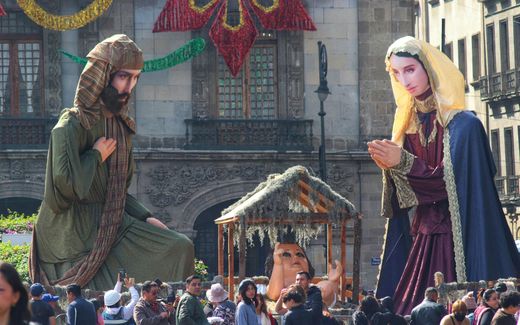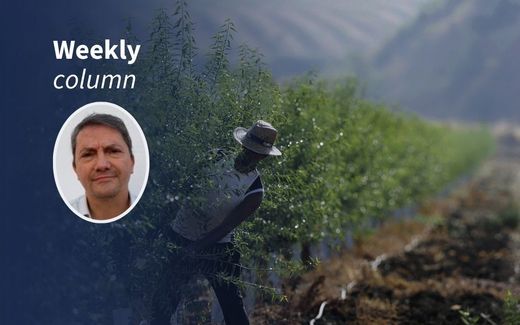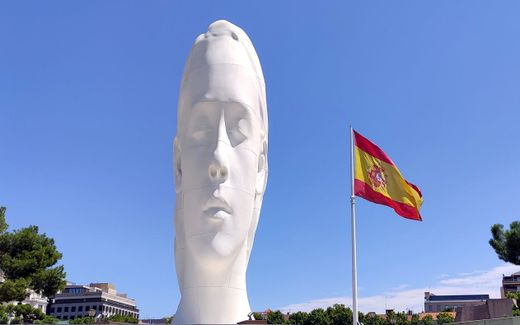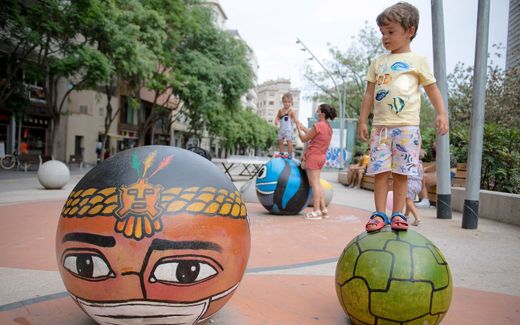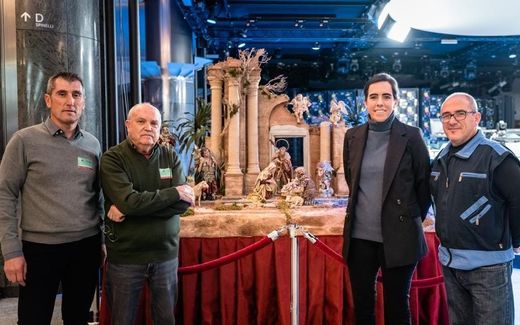How Spanish Christians celebrate Christmas in January
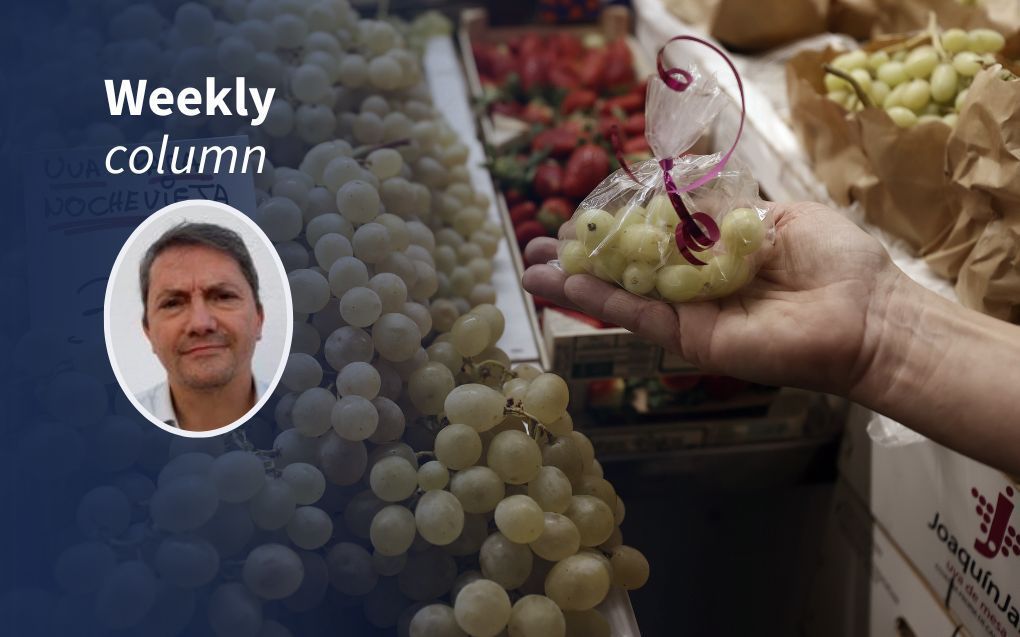
A man holds up a bag of 12 grapes before the New Year festivities in Pamplona, Spain. Photo EPA, Jesus Diges
Christian Life
Christmas celebrations in Spain may start in December, but they do not stop there. Traditionally, the Spanish Christmas is divided into three main festivities: "Nochebuena-Navidad" (24-25 December); "Nochevieja-Año Nuevo" (31 December-1 January); "Vigilia de Reyes-Día de Reyes" (5-6 January).
Students from primary school to university do not have any classes, and their holiday break usually runs from 23 December to 7 January.
All workers, on the other hand, have only three public holidays: 25 December (Christmas), 1 January (New Year's Day) and 6 January (Epiphany). These three holidays become the three main family meals during the Christmas period. The first meal starts on Christmas Eve (24 December) and usually involves singing carols as a family.
The celebration of Christmas remains one of the few collective events that still identifies Spain as both a Christian and Roman Catholic country.
Cabalgatas de Reyes
For example, the typical "Cabalgatas de Reyes" on 5 January often involves parades with floats representing the "magi" of the Gospels on their pilgrimage to Bethlehem. This event has now transformed into different kings bearing gifts for the children. "Cabalgatas de Reyes" still reveals quite clearly that their origin was a religious procession, like those of Holy Week or Corpus Christi (in May or June), while continuing to blend folkloric themes.
While many Christmas traditions are kept, they have also adopted significant changes, an inevitable consequence of the culture opening since the mid-20th century. For example, since the 1960s, the Christmas tree has been incorporated as a Christmas decoration on the streets and in many homes. However, before the Christmas tree's prevalence, there were Spanish "belenes-"representations with figures of the birth of Jesus in Bethlehem.
Even today, the distribution of gifts on Three Kings' Day (6 January) is kept, but the Anglo-Saxon custom of distributing them on Christmas Day has also been adopted. Father Christmas, so to speak, has therefore joined the Three Wise Men in the task of delivering Christmas presents. Another Anglo-Saxon custom transforming Christmas celebrations in Spain is the so-called "Black Friday." This has involved taking advantage of product sales more and more, as many begin their electronic gift purchases in November and give them out during the Christmas period.
New Year in Spain
But among the Christmas celebrations, the custom of "Nochevieja" (New Year's Eve) stands out in particular. "Nochevieja" involves eating 12 grapes to accompany the 12 chimes on 31 December. This follows the live television broadcast of the chimes from the Puerta del Sol in Madrid.
Eating 12 grapes synchronised in about 36 seconds requires an unquestionable level of skill, which many do not achieve, as one has to overcome notorious difficulties. This starts with not confusing the sound of the chimes with that of the 'quarters' [of an hour] that precede them. Then, there's the dilemma of what to do with grape seeds that accumulate in the mouth. And then, finally, you must pay attention not to end up choking on the grapes, which has sometimes happened. Those who manage to do so enter with a "good foot", so you can expect to "have luck" in the New Year.
There are different theories about the origin of the New Year's Eve grape tradition. Some say that the tradition began between 1880 and 1900 as a parody by the working classes of the private dinners held by the wealthy classes in Madrid on that date. According to others, it was mainly due to a successful commercial campaign by winegrowers in the Spanish Levante region after an excellent season in 1909. The winegrowers managed to introduce the consumption of grapes to attract good luck for the following year.
Be that as it may, the custom is still going strong today. Every year, around two million kilos of grapes are consumed in the country on New Year's Eve, which is not bad for just one day. All national television channels broadcast the 12 chimes from the Puerta del Sol, hiring the most famous figures from the world of show business. Some 15,000 people eat the grapes live in the Plaza del Sol itself (16,000 square metres), while some 18 million people watch it on television.
Eating a certain number of grapes during New Year's Eve celebrations may come off as exotic or borderline superstitious. But neither should we, as Christians, "overdo it" when evaluating it. In reality, no one believes that because they think that they will eat grapes successfully and will have good luck in the coming year. It is primarily a family game or ritual to wish everyone a Happy New Year after the chimes.
New Year reflections
If one stops to think about it, there are different ideas behind this New Year's Eve custom. First, people know they are not masters of their own lives. During the coming year, a thousand things that are often out of our control can happen. The celebration of the chimes is, therefore, a reason to rejoice, and at the same time, people wish everyone there to continue to celebrate next year.
In addition to the New Year's Eve chimes and grapes, there is a series of "New Year's resolutions," things everyone wants to improve in their lives from the very first day of the year. These resolutions, in most cases, will probably take up the first few days of the year and gradually fade away as time goes by. But, in any case, they bear witness to a desire for renewal, a yearning for change and for a new life.
Finally, celebrating the New Year as a family, usually with different generations, bears witness to a certain yearning for transcendence expressed within the family framework. Inevitably, the day will come when not everyone will be present for that year's celebration. But to be able to do so this year is not only a reason to be grateful but also to witness today that life will go on in the younger generations.
Fulfilling these ideas in the light of the Word can effectively communicate the Gospel in context to Spanish culture. People's spiritual needs are always the same in all parts of the world, but the way in which they are expressed or manifested differs. As Christians, we must seek to cultivate the necessary skills so we can apply biblical truths with discernment and reach others from the deepest depths of human mentality.
Related Articles


